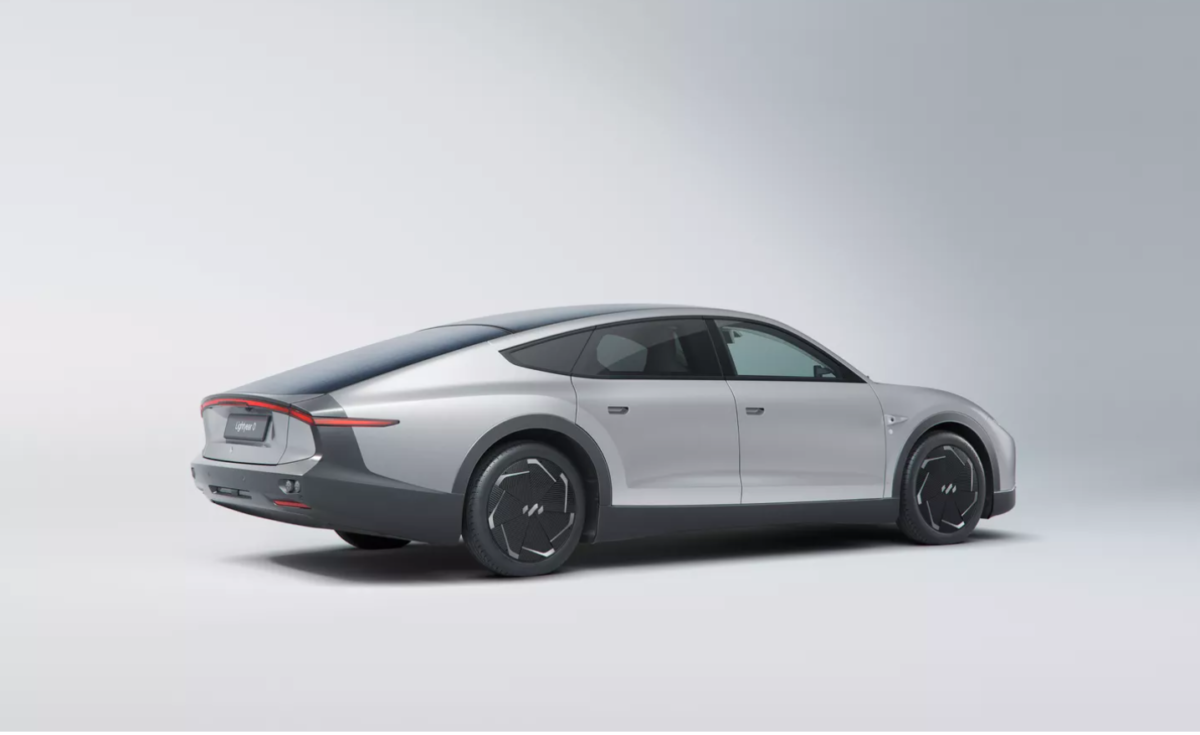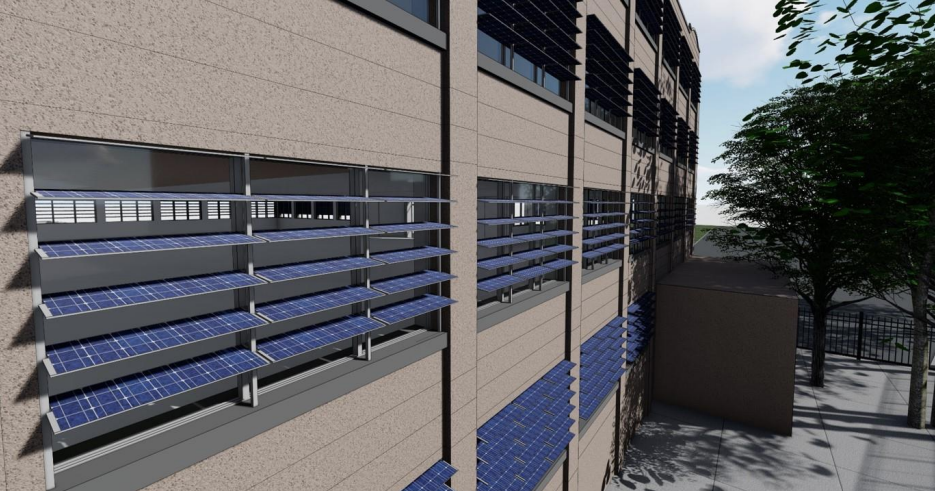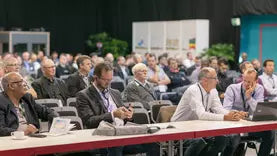https://www.pv-magazine.com/2022/12/06/the-mobility-revolution-lightyear-becomes-first-to-launch-series-production-of-solar-evs/
The mobility rEVolution: Lightyear becomes first to launch series production of solar EVs

Lightyear 0 was unveiled in June this year.
Image: Lightyear
Lightyear has commenced production of its first vehicle, Lightyear 0, at Valmet Automotive’s facility in Finland. It plans on producing one car a week and gradually scaling up its production in the first quarter of 2023. After six years of developing efforts, the Dutch company has become the first automotive company to manufacture an electric vehicle that generates power directly from sunlight. The final design of the long-range solar car Lightyear 0 was launched in June. It has a Worldwide Harmonized Light Vehicle Test Procedure (WLTP) range of 625 kilometers and consumption of 10.5 kWh per 100 kilometers. However, the Dutch startup claims that a theoretical range of 695 kilometers could be achieved, with a battery pack capacity of 60 kWh. “The optimized solar roof and holistic design mean that the car can drive for weeks, even months, without charging,” the company said. Lightyear is already readying its second solar electric car, which will be available by late 2024 or early 2025.
Acciona Energia has set up the first vehicle-to-grid (V2G) network in Spain. The Balearic Islands demo project comprises 16 bi-directional chargers that allow to charge vehicles with renewable electricity, recover energy from the batteries for self-consumption (vehicle-to-load or V2L), or inject it back into the grid (V2G). The project involves eight Balearic companies that will install the charging points. Two more will join in the second phase, expanding the V2G network to the islands of Menorca and Ibiza. Acciona Energia has provided participating entities with eight V2G-equippped EVs. According to the renewable energy firm, “the pilot marks the first implementation of V2G technology on an industrial scale in Spain, with a sufficient dimension to establish patterns of behavior and use.”
ADS-TEC has launched its battery-based, all-in-one EV charging system ChargePost. The solution is said to deliver more than 100 kilometers of range in just a few minutes. It comes with two high-power connections that can deliver up to 300 kW to one vehicle or 150 kW to two cars charging simultaneously. It has up to two optional 75-inch digital displays on its exterior surfaces. The system integrates the battery, power electronics, cooling system and charger in a compact package requiring less than 2 square meters of ground space. Its battery capacity is configurable and ranges from 143 kWh to 201 kWh and battery modules can be replaced individually as needed. The integrated charging cable with uncooled CCS1/CCS2 connector is at least three meters long. ChargePost is said to be able to deliver ultrafast charging even on low power grids. According to ADS-TEC, this makes it possible to install it “almost anywhere, including inner cities and rural areas where high-voltage grids are often not available.” The solution features plug-and-play installation at the ground level and can be quickly set up by forklift. As of now, ChargePost is available in Europe and will be soon reach the US market.
Popular content
Volkswagen Group and its battery subsidiary, PowerCo, have launched a site search for the first battery cell factory in North America. “Canada is a logical option for the construction of a gigafactory in the North American region. The country offers high sustainability standards and ideal economic conditions, and the government of Canada has already proven to be a strong and reliable partner,” said Volkswagen Group CEO Oliver Blume. Last week, Blume and François-Philippe Champagne, the Canadian minister of innovation, science, and industry, signed an addendum to the non-binding Memorandum of Understanding (MoU) of August this year to identify suitable sites for PowerCo cell factory in Canada. In addition, a separate agreement was inked between PowerCo and Belgian materials technology group Umicore to secure cathode materials for future cell production in North America. This concerns a volume of up to 40 GWh per year in 2030, corresponding to about 550,000 EVs. Deliveries are planned to start in 2027. In order to supply several partners, Umicore plans to start construction of a plant for the large-scale industrial production of cathode materials and precursors in Canada from 2023 onwards.
BYD plans to start selling EVs in Japan by early 2023. The Chinese company said it will roll out an electric sports utility vehicles, ATTO 3, in Japan starting Jan. 31. The car has a cruising distance of 485 kilometers and will cost JPY 4.4 million ($32,736). The Japanese division plans to introduce two more models by the end of 2023 and open more than 100 dealerships by the end of 2025.
This content is protected by copyright and may not be reused. If you want to cooperate with us and would like to reuse some of our content, please contact: editors@pv-magazine.com.




